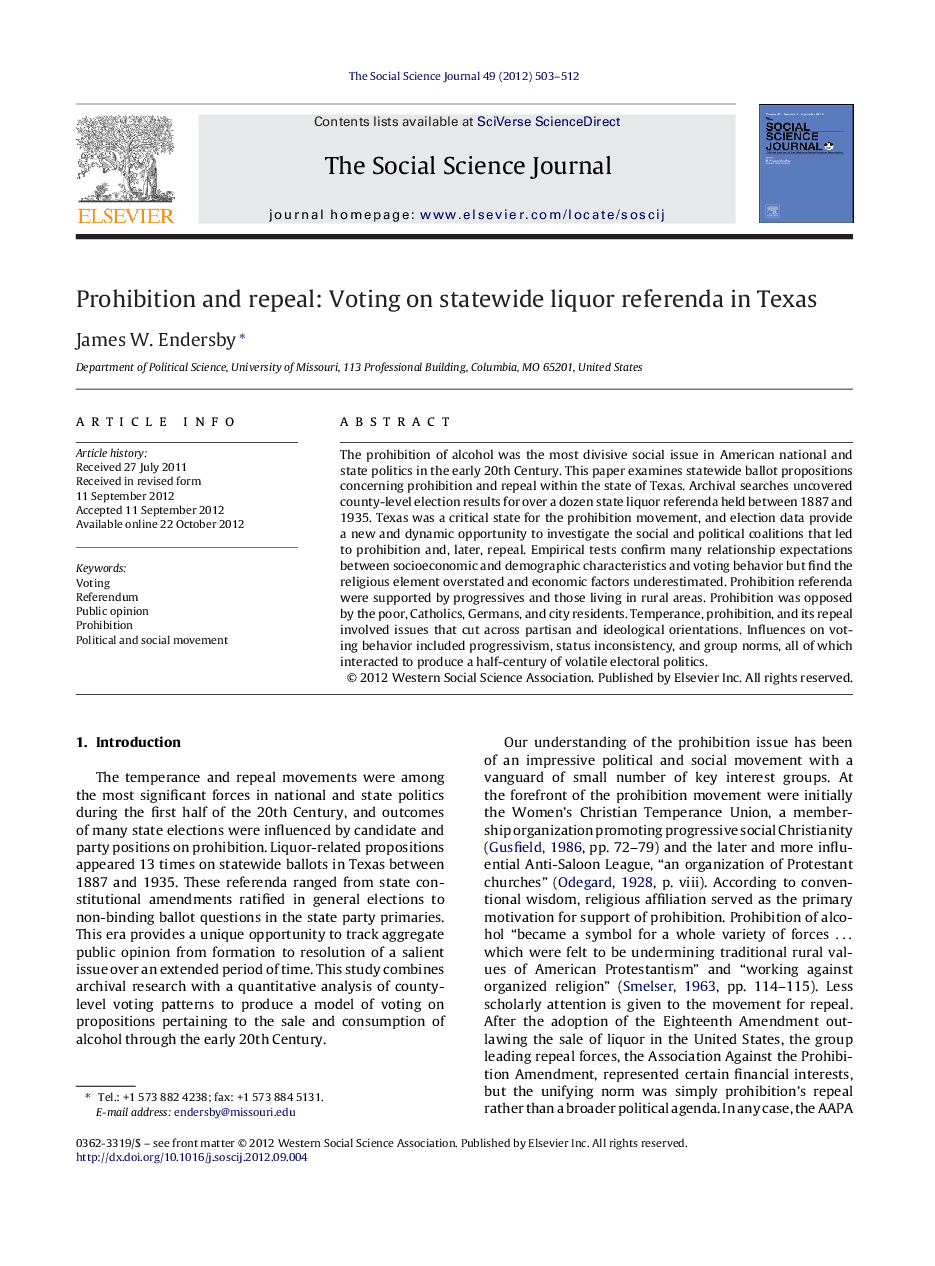| Article ID | Journal | Published Year | Pages | File Type |
|---|---|---|---|---|
| 140226 | The Social Science Journal | 2012 | 10 Pages |
The prohibition of alcohol was the most divisive social issue in American national and state politics in the early 20th Century. This paper examines statewide ballot propositions concerning prohibition and repeal within the state of Texas. Archival searches uncovered county-level election results for over a dozen state liquor referenda held between 1887 and 1935. Texas was a critical state for the prohibition movement, and election data provide a new and dynamic opportunity to investigate the social and political coalitions that led to prohibition and, later, repeal. Empirical tests confirm many relationship expectations between socioeconomic and demographic characteristics and voting behavior but find the religious element overstated and economic factors underestimated. Prohibition referenda were supported by progressives and those living in rural areas. Prohibition was opposed by the poor, Catholics, Germans, and city residents. Temperance, prohibition, and its repeal involved issues that cut across partisan and ideological orientations. Influences on voting behavior included progressivism, status inconsistency, and group norms, all of which interacted to produce a half-century of volatile electoral politics.
► The issue of prohibition was a critical component of the progressive movement and a central question of state politics. ► Thirteen referendum propositions regarding prohibition and repeal were offered to Texas voters from 1887 to 1935. ► This research involves original collection of county-level returns and identification of important electoral coalitions. ► Ethnicity and the rural–urban distinction were major cleavages. Religious belief was an important, but secondary factor. ► Prohibition proponents supported features of the progressive agenda. Economic interests dominated efforts for repeal.
